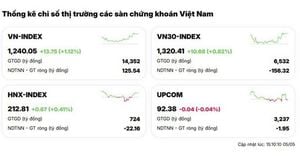The Brazilian government has officially implemented the new minimum wage, which now stands at R$ 1,518 as of February 1, 2025. This marks the first such adjustment for the year, with the increase representing about 7.5% or R$ 106 from the previous salary of R$ 1,412. This adjustment has been sanctioned under new regulations established by President Luiz Inácio Lula da Silva, aimed at addressing economic challenges and managing inflation.
The new rules enforce limits on the real increase of the minimum wage to 2.5% above inflation between 2025 and 2030. These regulations are pivotal since they directly affect workers’ purchasing power, ensuring salary adjustments are aligned with the cost of living. The calculation of the new minimum wage involves inflation measured by the National Consumer Price Index (INPC) and the country's Gross Domestic Product (GDP) from two years prior. For reference, the INPC showed a 12-month increase of 4.84% until November 2024, along with the GDP figure at 3.2% from before. This would have theoretically adjusted the wage to R$ 1,528; instead, the wage has been set lower by R$ 10 due to the new legislative cap.
Following the establishment of the new wage, significant adjustments are also being made to social benefits. The first payments of the abono salarial, which is designated for workers who earned up to two minimum salaries in 2023, will begin on February 17, 2025. The schedule dictates payments will be made according to the birth month of recipients, starting with those born in January and continuing through to December. Beneficiaries eligible for this payment must have been registered for at least five years and have their employment data submitted properly according to the regulatory standards.
The abono salarial will become increasingly significant with approximately 25.8 million recipients anticipated for the year 2025, with the total expenditure expected to reach R$ 30.7 billion. The calculated amount is aligned with the new minimum wage of R$ 1,518, and each recipient’s amount will be proportionate to their actual time worked within the year.
Regarding retirement benefits, the 13th salary, traditionally received by retirees, pensioners, and beneficiaries of other social programs, will also maintain the value tied to the minimum wage. For 2025, it will correspond to R$ 1,518, paid out in two installments: the first between April and May, and the second between November and December. During the first installment, there are no income tax deductions, ensuring beneficiaries receive the full amount, whereas the second may be subject to income tax deductions depending on the individual's total annual income.
These adjustments to the 13th salary have seen anticipation over the longer term, as they are intended to help recipients manage increased costs associated with end-of-year spending, especially during the holiday season.
Lastly, micro-entrepreneurs, commonly referred to as MEIs (Microempreendedores Individuais), are facing changes to their monthly contributions due to the new minimum wage. The DAS-MEI, or the Simples Nacional payment document, will increase from R$ 70.60 to R$ 75.90, which is 5% of the minimum wage. For MEIs who fall under specific categories, such as those involved with transportation, the monthly payment will be adjusted upwards from R$ 169.44 to as much as R$ 188.16 based on the nature of their service.
A legal expert, Thaís Delfino, cautions MEIs about the necessity of timely contributions. She warns, "Os MEIs que estiverem com guias atrasadas devem ser atentar para regularizar a situação," indicating the importance of staying up to date with contributions to avoid penalties such as the cancellation of their CNPJ (National Register of Legal Entities), which would disallow them access to benefits provided under the Simples Nacional law.
With all these adjustments, the Brazilian Ministry of Economy aims to stabilize economic fluctuations and help low-income workers maintain their livelihoods amid rising inflation and cost of living pressures.



